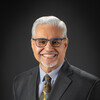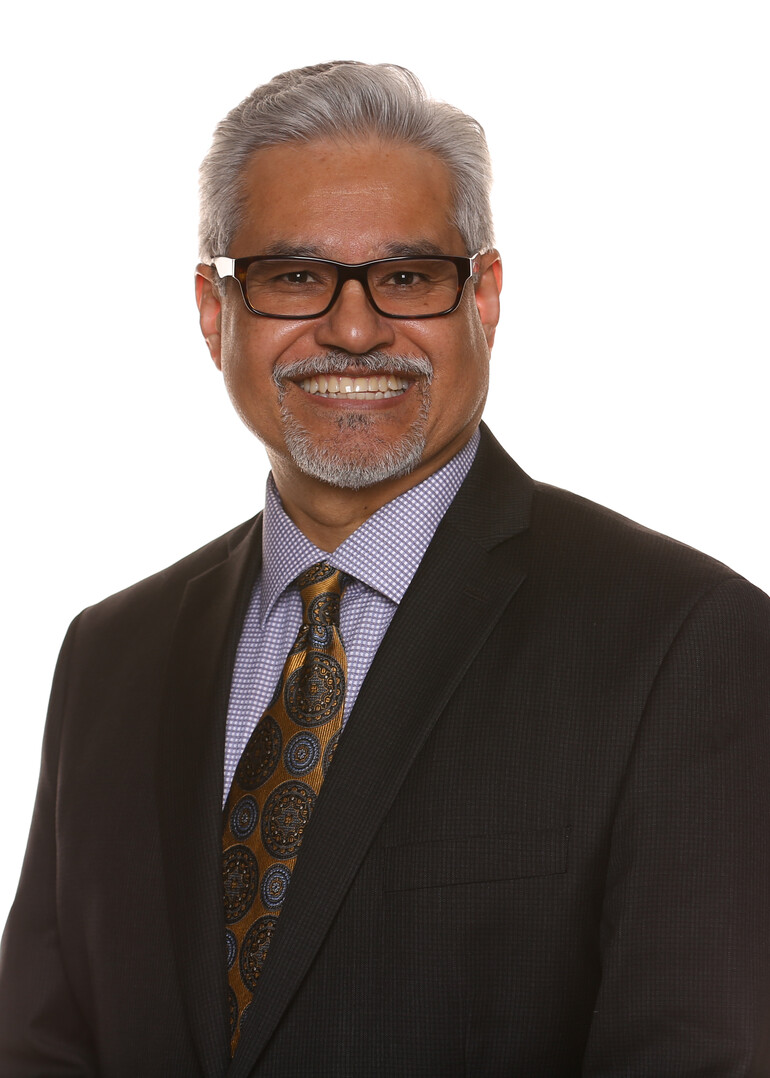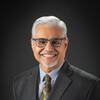I can picture him as if he and I were standing together just yesterday. But the memories are of my childhood friend, Rafael, who was crippled. While the rest of us played soccer, kickball or baseball, Rafael would stand on the sidelines, leaning on his crutches, content to watch his neighborhood buddies work up a sweat.
As I have pondered the recent meetings and commentary within our church, I have been reminded of Rafael and a story told by the apostle John who describes how Jesus walked 67 miles on a Sabbath afternoon to heal a man. This story shares the polar extremes of a man, prone in the same spot for 38 years, who is suddenly restored to health in the blink of an eye.
The church leaders who look on do not join in the celebration of this miracle. In their eyes, Sabbath-keeping rules have been broken, and they are blinded to the righteous act of the Creator of the Sabbath.
I can only imagine what this formerly crippled man may have been thinking: “Don’t you guys recognize me? You must know that I am the same man you’ve seen parked next to the pool of Bethesda for 38 years? You must have noticed me at some point. Look at me! I’m walking for heaven’s sake! I’ve been healed … .”
Their response is cryptic: “But it is the Sabbath; it is not lawful for you to carry your bed!” “d’Nile” is not just a river in Egypt. Denial, in fact, is a core ingredient in self-deception that runs deep and wide in humanity. It is rampant in Christian communities.
Under the beguiling mindset of self-deception, the only thing that is vital is what’s most important to me — never mind the moving of the Spirit in others’ lives. My focus is so exclusively attuned to what is important to me that I have no interest in acknowledging the possibility that something else of eternal significance is occurring right before my eyes. Like the spiritual leaders of old, I may become blind to the miracles empowered by the Spirit of God. I deny the experiences of others that do not align with my personal agenda or priorities. My agenda becomes more important than Christ’s agenda, more important than His mission.
The spiritual leaders who are upset with the perceived Sabbath-breaking miracle, take their indignation to an almost unthinkable extreme. The keepers of the fourth commandment begin plotting to kill Jesus. In their warped logic, the fourth commandment is far more important than the other commandments. It is more important than Commandment-Giver. “For this reason,” recounts John’s story, “the Jews persecuted Jesus, and sought to kill Him, because He had done these things on the Sabbath.”
But let’s listen to Jesus as He lays out the purpose of His actions. This is why so many times His words and His ministry crossed the lines of those who were too rigid in their religion. These words are some of the most important things He will say during His earthly mission. It’s all laid out for us in John 5:17–20 (NKJV).
“But Jesus answered them, ‘My Father has been working until now, and I have been working.’ Therefore the Jews sought all the more to kill Him, because He not only broke the Sabbath, but also said that God was His Father, making Himself equal with God. Then Jesus answered and said to them, ‘Most assuredly, I say to you, the Son can do nothing of Himself, but what He sees the Father do; for whatever He does, the Son also does in like manner. For the Father loves the Son and shows Him all things that He Himself does; and He will show Him greater works than these, that you may marvel.’”
Notice these core elements to what Jesus says: “My Father works, I work”; “What I see my Father do, I do …” (this was so important, Jesus repeated the thought twice); “the Father loves the son and shows Him all the things that He himself does …”. Jesus also goes on in verse 21 to say, “For as the Father raises the dead and gives life to them, even so the Son gives life to who He will.”
These words set the foundations of the Christian church in place. Christianity is based on communities made up of dyads. A dyad involves two parts. In our Christian context, one part is called Lord-Master, the other is called a disciple-student. Jesus was the first disciple, not John or Andrew or Peter. Jesus was discipled by His Heavenly Father. This was the beginning of a global chain reaction: Abba discipled Jesus, Jesus discipled His disciples, the disciples continued to disciple other people … and so the church grew. If this domino effect is hindered or stopped in any way, and the dyad chain is broken and the church dies.
Christianity was born and framed within the context of community. A community of living dyads whose sole purpose was to imitate Jesus’ example of disciple-making. Stop doing community and Christianity will surely die. The dyad is so critical that a key biblical promise from Jesus in Matthew 18:19-20 is rooted in this concept: “Again, I say to you, that if two of you agree on earth concerning anything that they ask, it will be done for them by My Father in heaven. For where two or three are gathered together in My name, I am there in the midst of them.”
What water is to fish, community is to Christianity. We cannot live a healthy Christian experience alone. Our faith does not grow in a vacuum. The danger we are experiencing today involves churches trying to live the Christian experience without the community experience. Community takes time, it is inconvenient, and the experience can get dirty. “If I get too close, then you start telling me your problems … and soon you’ll tell me you need a ride to the doctor … It’s just too cumbersome!”
But when you are connected to the Father, and the Agenda-Giver calls for you to take 17 hours out of your own schedule to travel the 67 long miles from Cana of Galilee to Jerusalem in order to heal a sick man on a Sabbath, you just do it. In this dyad relationship, when God calls, His disciple answers.
A true disciple, then, is a person who, as a result of his or her communion with the Father, chooses to live life obeying the Father’s agenda. The Adventist Church now claims 24 million members. How many of those, how many of us, are truly His disciples?
Henry and Richard Blackaby, on page 41 of the book Spiritual Leadership, write: “Spiritual leadership is moving people from their personal agendas into God’s agenda and helping them follow it.” In another place, they infer that, if you have never moved anyone from their own agenda into God’s agenda and empowered them follow it, you are not a spiritual leader.
I still recall the day my wife and I were heading separate directions for ministry. Our flight from Portland was delayed, and when we arrived in Seattle for connecting flights to our destinations, I realized Carolann might be too late to catch her next flight. Caught up in my own anxiety, I was surprised with her casual response. “I’m not worried at all,” she said, “because if it’s in God’s agenda for me to spend a night in Seattle instead of speaking at the retreat tonight, He will provide lodging for me. I will trust that He has a good reason for leaving me here.” We can be at rest when God’s agenda is our first priority.
Adventist Church members attend church every Sabbath. They worship, sing, listen to a sermon, return their tithe, go home and then do it all over again the next week. Disciples, on the other hand, connect with their heavenly Father on a daily and moment-by-moment basis. He gives them His agenda for the day, and they are guided and empowered by the Spirit to fulfill that agenda. This is true living! This is extreme living! This is radical, mission-focused living.
Just as Jesus didn’t allow the religious zealots to derail Him from His mission-focused life, let’s not allow anyone or anything to derail us from following God’s agenda for lives of daily spiritual commitment. It’s time to get back to the mission, His mission.










